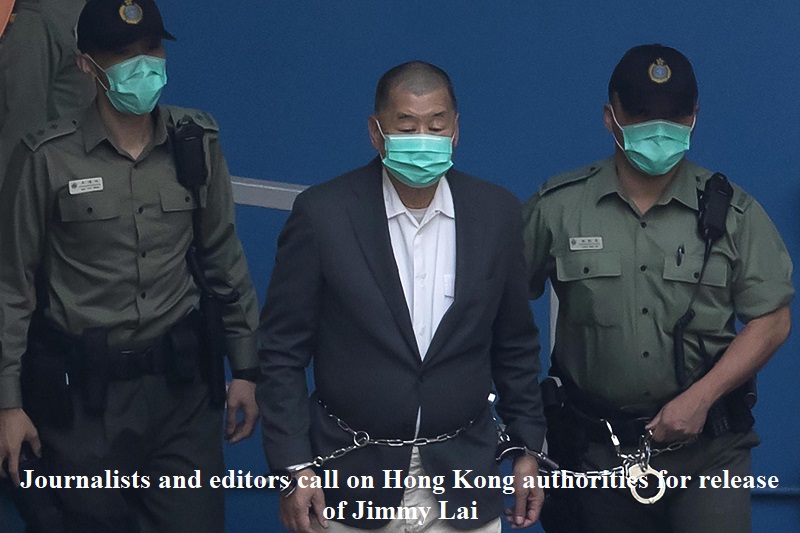
Over 100 journalists and editors have issued a collective plea to Hong Kong authorities, urging the immediate release of Jimmy Lai, the media tycoon behind Apple Daily, a pro-democracy newspaper in the region. The journalists and editors have affixed their signatures to an open letter expressing their concerns.
Lai, who has been a vocal critic of the Chinese Communist Party, is presently detained and facing charges under Hong Kong’s national security law, which critics view as a means for China to suppress pro-democracy sentiments in the territory. In 2021, Apple Daily was compelled to cease operations by the authorities.
Lai, who is 75 years old, was initially arrested in 2020 and subsequently charged with violating the national security law in August of the same year. In addition to these charges, he has also been convicted of fraud and organizing illegal protests. His trial related to the national security law is scheduled for September.
The open letter, organized by Reporters Without Borders (RSF), states, “We, as publishers and editors of news media organizations from around the world, are united in support of Apple Daily founder and publisher Jimmy Lai, and his fight for media pluralism and press freedom in Hong Kong.”
It commends Lai for his lifelong dedication to upholding these values and highlights his courage in choosing to remain in Hong Kong and continue publishing despite the severe crackdown by authorities.
According to RSF’s World Press Freedom Index 2023, Hong Kong is ranked 140th out of 180 countries, marking a decline of 58 places over the past decade.
The protests in Hong Kong that took place from 2019 to 2020 were sparked by the government’s proposed amendment to the Fugitive Offenders Ordinance. While the bill was eventually withdrawn, the initially peaceful sit-in protests escalated into confrontations and violence. In response, Hong Kong authorities cracked down on the demonstrations.
In 2020, the decision was made to implement the national security law, leading to the arrest of over a hundred individuals under this legislation.

Post Your Comments